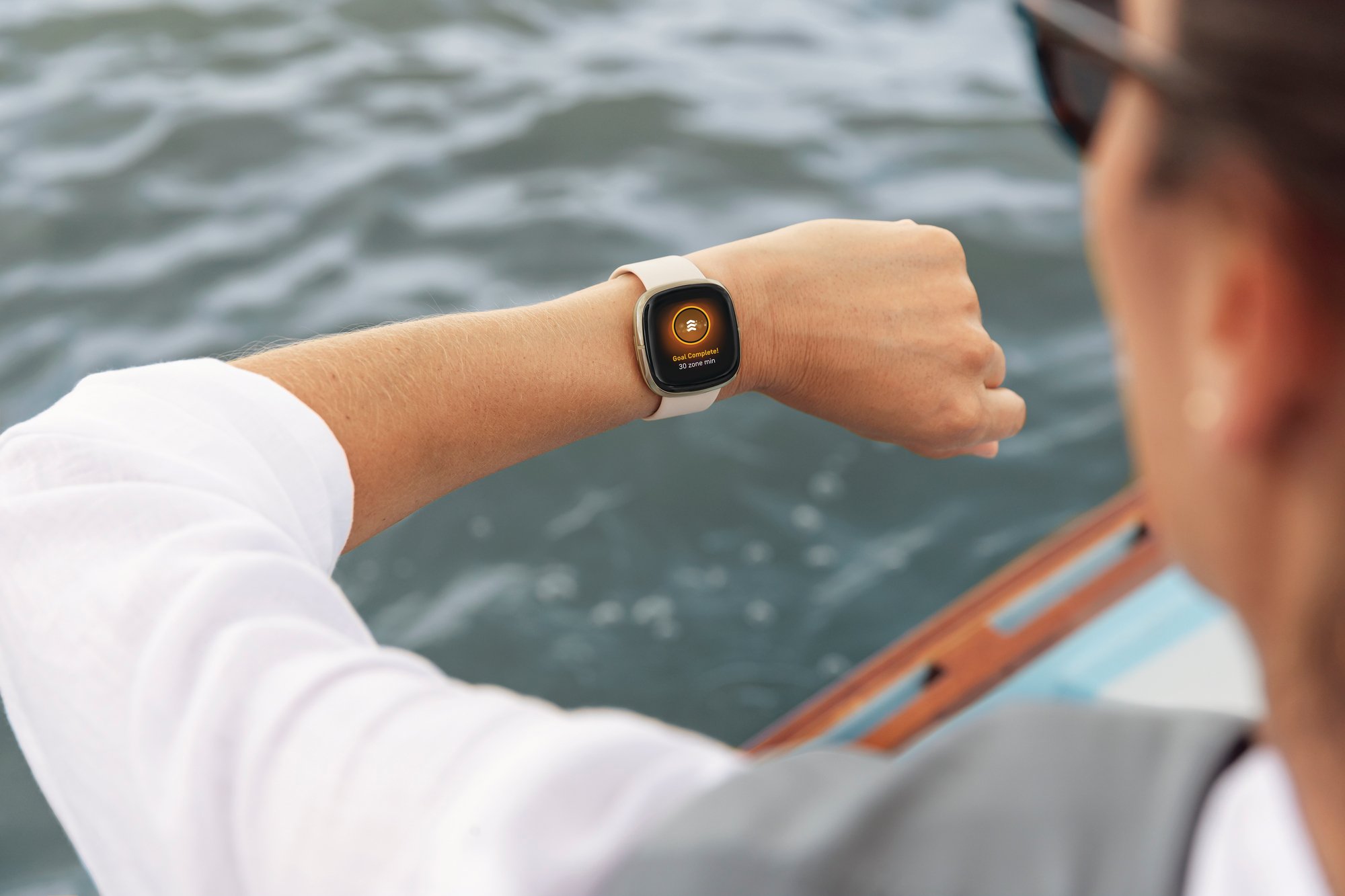Back in January, Fitbit (FIT +0.00%) was hit with a class action lawsuit claiming that the heart rate monitoring features in the Charge HR and Surge, which were both released last year, were inaccurate by a "significant margin."
Fitbit responded by claiming that PurePulse, its proprietary heart rate technology, "provides better overall heart rate tracking than cardio machines at the gym, as it tracks your heart rate continuously even while you're not at the gym or working out." However, the company also noted that its trackers "are not intended to be scientific or medical devices."

The new Fitbit Blaze. Image source: Fitbit.
However, a new study conducted by researchers at the California State Polytechnic University in Pomona -- and partly funded by the lawyers involved in the case -- seemingly supports the plaintiffs' claims. The study found that the heart rate measured by Fitbit devices was sometimes more than 20 beats off compared to the rate measured by other monitors. Furthermore, the higher the level of physical activity, the more inaccurate Fitbit's trackers became.
Fitbit quickly pointed out that the study was commissioned by the plaintiffs, and recently told Gizmodo that it was "biased, baseless, and nothing more than an attempt to extract a payout from Fitbit."
This isn't Fitbit's first legal rodeo
Fitbit has been targeted by other class action suits before. Back in 2014, a class action lawsuit claimed that the Fitbit Force caused some users to develop skin rashes. Fitbit eventually recalled the device and replaced it with the Charge, a similar device created with new materials. Last May, it was hit by another class action lawsuit claiming that its sleep trackers didn't work as advertised, but an update in November indicated that the suit would probably be dismissed due to a lack of clear evidence.
Fitbit was entangled in another patent litigation battle against its smaller rival Jawbone. Jawbone also claims that Fitbit poached its employees for access to product designs and marketing plans. But in April, Fitbit invalidated the last of Jawbone's disputed patents, bringing that ugly battle to a close.
Fitbit isn't the first fitness tracker maker to be sued over the accuracy of its devices. Last July, Nike (NKE 1.12%) and Apple (AAPL 0.46%) settled a class action suit which claimed that the iOS-exclusive Nike+ Fuelband didn't accurately track steps taken and calories burned. Nike and Apple both denied those claims, but eventually settled by giving customers a partial refund in the form of $15 to $25 Nike gift cards. The Fuelband has been discontinued.

Nike's discontinued Fuelband. Image source: Nike.
How could the lawsuit hurt Fitbit?
It's unclear how much Fitbit could lose from the heart rate lawsuit, but class action settlements are generally small and written off as one-time charges. But if the lawsuit prompts a widespread recall of the affected products, as it did with the Force, then Fitbit could be in big trouble.
In the fourth quarter of 2015, the Charge, Charge HR, and the Surge generated 79% of Fitbit's sales. By the first quarter of 2016, nearly half of its sales came from the Blaze and the Alta. All those devices, except the original Charge and the Alta, use PurePulse heart rate monitors. If Fitbit recalled all those devices (which would be a worst-case scenario) and reinstalled new heart rate monitors, the expenses would likely cause Fitbit's margins -- which have already been contracting over the past few quarters due to higher R&D and marketing expenses -- to plunge.
Enterprise opportunities could be threatened
But even if that worst-case scenario doesn't occur, questions about the accuracy of its devices could tarnish its reputation with physicians and corporate customers. To avoid FDA oversight, Fitbit and other fitness trackers often emphasize that they are "health and wellness" products instead of medical devices.
That makes it easier to roll out new devices for mainstream consumers, but it's already raising eyebrows in the medical community. In a recent op-ed piece at iMedicalApps, Dr. Satish Misra stated that he couldn't "help but wonder about risks when recommending specific, unvalidated devices," and that it "would be prudent to stick to validated devices that at least have solid evidence behind them."
If major companies are also thinking about the same issues, the growth of Fitbit's corporate wellness programs could be throttled. After all, companies might be unwilling to base insurance discounts on potentially flawed data. But if Fitbit has to send all its devices to the FDA for approval, R&D costs would likely surge and its product refresh cycle could become much more sluggish.
What's really at stake
I personally don't think the worst-case scenario of widespread recalls will occur, but the lawsuit could damage Fitbit's credibility with healthcare professionals and corporate customers. That damage would be far worse than getting a financial slap on the wrist, since it could cripple its ability to use corporate wellness programs to generate fresh revenue and widen its moat against potential challengers.







